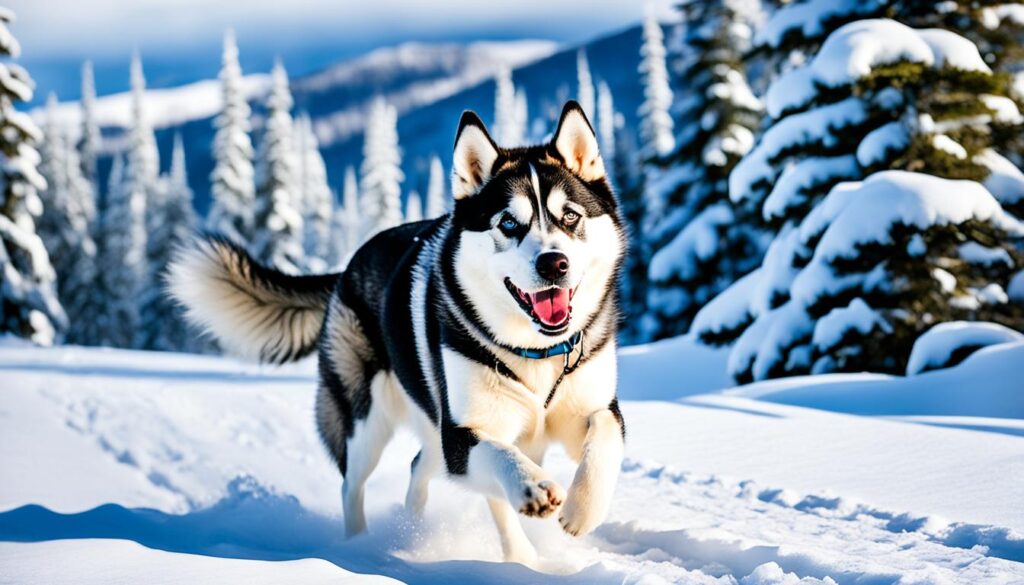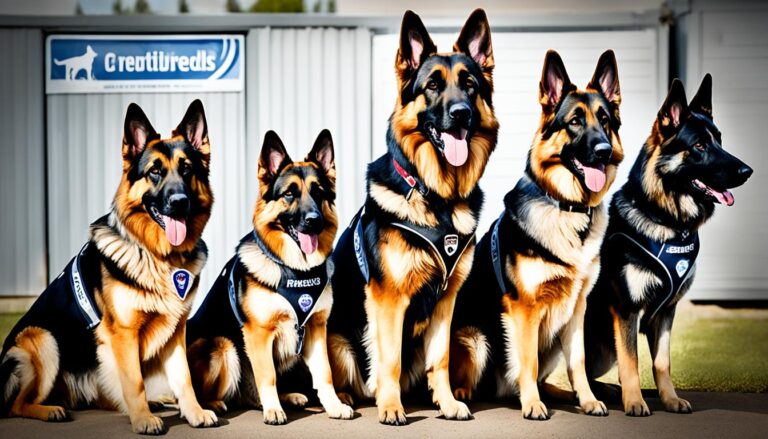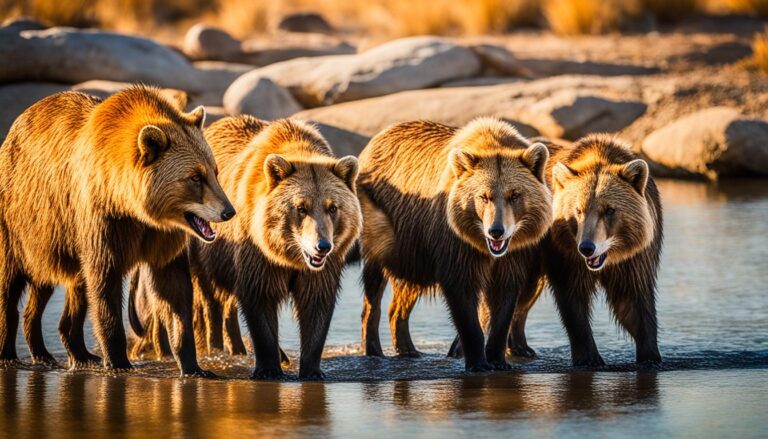Husky behavior problems – Common behavioral issues in Huskies.
Thinking about adding a Husky to your family? You might be worried about their behavior. While Huskies are welcoming and lively, they can have challenges. They might show separation anxiety and need special care in terms of training.
Huskies are full of energy, they love their freedom, and they have a strong instinct to hunt. This leads to some issues you should know about. Huskies often want to run, explore, and be in charge. They need a lot of exercise, playtime, and continuous teaching. If they don’t get these, they might start to act out in various ways. This could be by making lots of noise, chewing things up, digging, or trying to get away.
Key Takeaways
- Huskies are prone to separation anxiety, which can lead to destructive behaviors like chewing and house soiling.
- Excessive vocalization, including barking, howling, and “talking back,” is a common Husky trait that requires training and management.
- Chewing and digging are instinctive Husky behaviors that need to be redirected to appropriate outlets to prevent damage.
- Huskies are notorious escape artists, making it crucial to ensure secure containment and prevent them from running off.
- The Husky’s strong prey drive can lead to chasing and potentially harming small animals, requiring careful supervision and training.
Understanding Husky Temperament and Behavior
The Siberian Husky is a lively, smart, and free-spirited dog. They were first used as sled dogs in cold Siberia. Huskies like being with their group and have a keen hunting sense. They are known to be friendly yet lively dogs.
Huskies need plenty of activities to stay happy and healthy. This helps prevent them from becoming bored, which can lead to trouble. Since their history includes working in teams, they love to run and follow their adventurous spirit.
But if Huskies lack enough play and exercise, they might start behaving badly.
Husky Temperament
Huskies share a lot in common with their wild cousins, wolves. They love being part of a group and have a powerful urge to chase. This hunting instinct makes it challenging for them to be around small animals.
Because of these traits, Huskies can be quite headstrong and difficult to train.
Inherited Traits from Ancestors
The Husky is known for being very active and needing lots of play. It’s suggested they get about 2 hours of exercise each day along with brain games to keep them happy.
Activities like agility training and interactive games are important for Huskies. These activities help them satisfy their need to explore and be with others. Without enough to do, they might get too loud, chew everything, or start acting out.

Husky behavior problems – Common behavioral issues in Huskies
Separation Stress and Destructive Behavior
Huskies love being part of a group, especially their family or dog friends. When they’re alone for too long, they might show signs of separation stress. This can lead to behaviors like chewing, barking, and house soiling. To keep Huskies happy, they need both physical exercise and mental stimulation.
Encouraging play with interactive toys and spending time with them can make a big difference. This helps reduce their stress and prevents them from destroying things.
Excessive Vocalization and Howling
Huskies are very chatty, often barking, howling, or even “talking” to their people. Such behavior is how they communicate, tracing back to their wild pack days. But, too much noise can signal something is wrong, like being bored or anxious.
Training them to be quiet when needed is helpful. It’s also good to let them indulge in howling sometimes, sticking to their natural ways.
Chewing and Digging Problems
Chewing and digging are hardwired into Huskies. If not managed, these actions can damage your home or garden. To stop this, give them suitable spaces and items to chew and dig on.
It can also mean they’re not getting enough play or feeling alone. Making sure they’re not bored or anxious is key. This stops them from destroying things while meeting their needs.
Escaping and Running Off
Huskies are skilled at escaping to explore. They sometimes run off, driven by their urge to chase. This is dangerous for them and others around them, risking accidents or getting lost.
Keeping them in a secure place and addressing their chasing instincts with proper training is crucial. This ensures both their safety and others’.
High Prey Drive
Huskies have a strong hunter’s instinct, which can be troublesome if they go after small animals. It’s vital for their owners to keep a close eye on them around tiny pets or wildlife. Training them with key commands can help, but managing their urge is an ongoing task.
Responsible pet care means protecting other animals while allowing Huskies to enjoy life safely.
Addressing Husky Behavior Challenges
Solving issues with Husky behavior needs a detailed plan. It combines training, plenty of exercise, and mental games. Setting clear rules is key, as Huskies react well to consistency. Keep them engaged with lots of activities to avoid boredom and its negative effects.
Patience and understanding are crucial when dealing with a Husky. Use methods that cater to their need for physical activity and social interaction. For difficult cases, seeking professional advice can be wise.
Understanding and supporting Husky needs is essential. By doing so, we avoid problems that can make owners give up their pets. With proper care, Huskies can be great friends who fit well into our lives.







